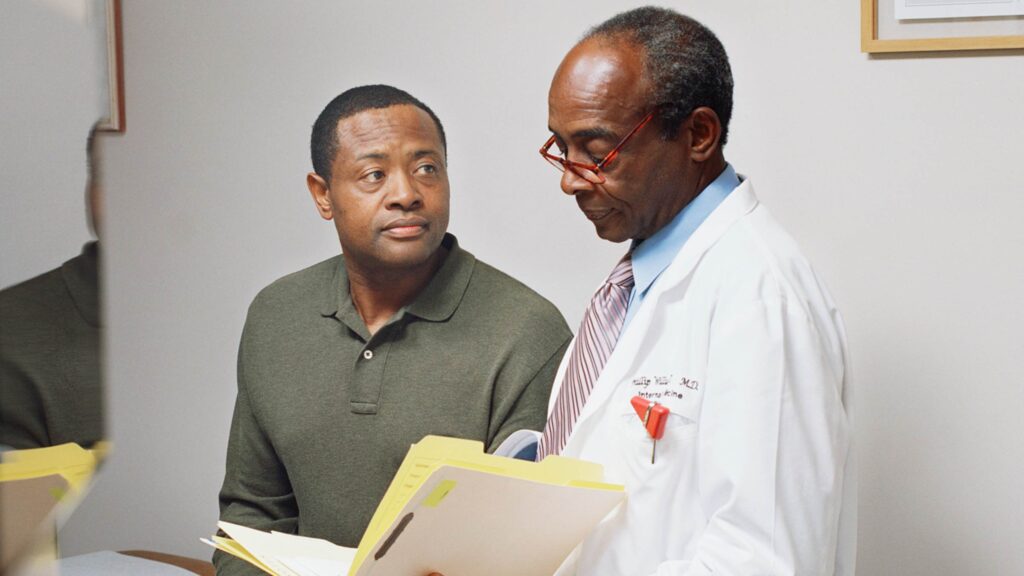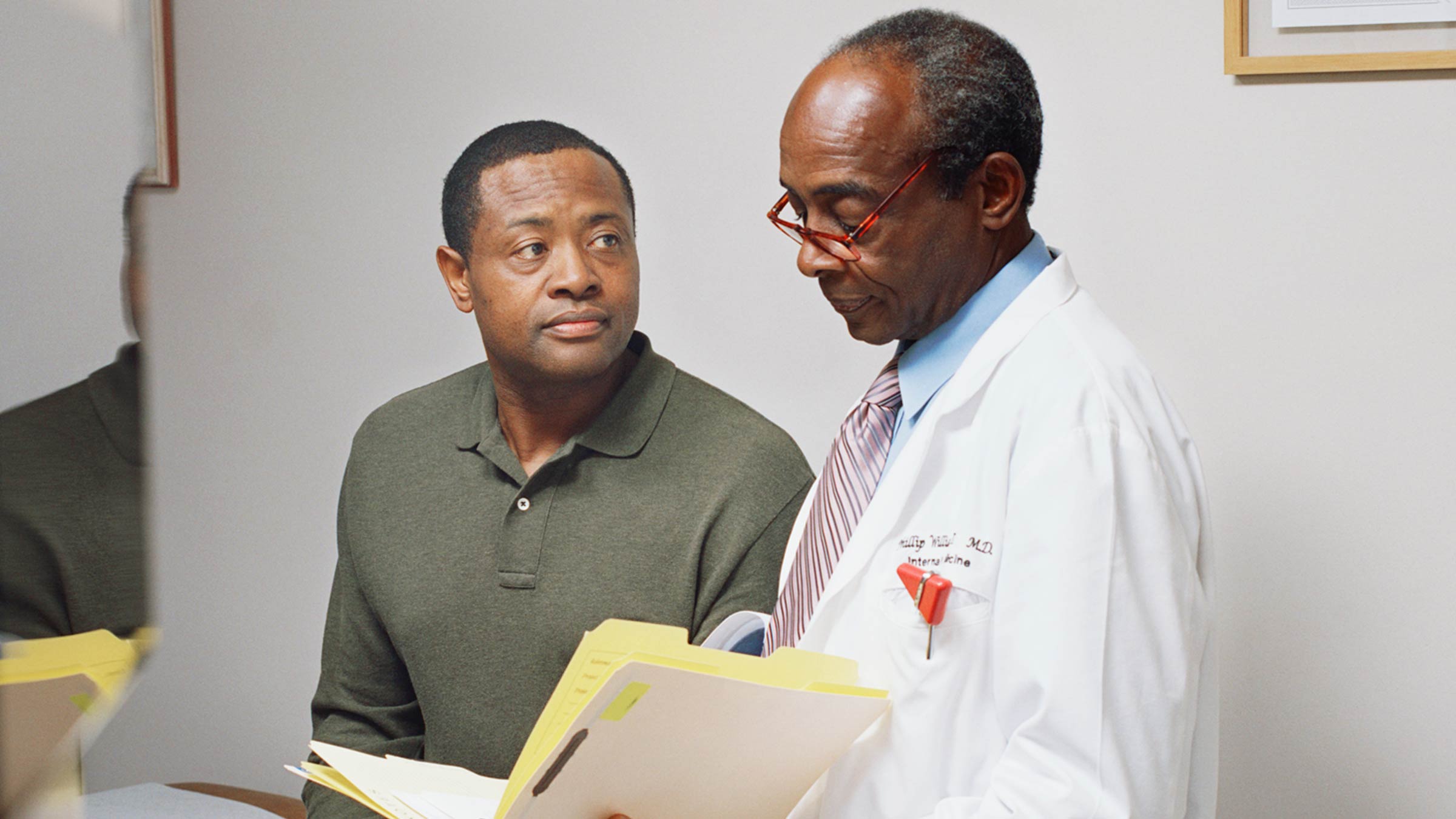A state of emergency is a situation of urgent need for help and relief. During a government-declared state of emergency, the government has authority to suspend normal constitutional procedure in order to regain control. These emergencies can be caused by social unrest, natural disasters, and most recently, global pandemics.
When we look at the current state of Black men’s health in the United States, a state of emergency can be declared. Our Black men are in a situation of urgent need for help and relief. We see this manifested in many aspects of Black men’s health.

In 2020, provisional data showed that there was a decrease in overall life expectancy by more than one year, while Black life expectancy decreased by about three years. When this is adjusted by race, it shows that Black men went from 74 years to 71.8 years of life expectancy compared to white men going from 78.8 to 77.8 years.
There are several reasons why Black men are living shorter and less healthy lifestyles, but to sum it up, the main reason is a lack of resources. Education, money, and accessible facilities all consist of these resources to which non-Black people have more access.
When we look at neighborhoods that are showing less illness and disease, we find that those people have more time spent in school, higher household incomes, more health care providers, increased healthy food options, and safer areas for exercise in their communities.
They have ideal and safe areas for young kids to get the appropriate amount of needed exercise. Accessibility to resources is important, and without them, Black people are left in a situation we have experienced for centuries: in a state of emergency, with zero help.
What can we do to address this state of emergency? There is an urgent need for help and relief to improve the state of Black men’s health in the United States. One thing we can do is fight for policy changes that will improve health equity, making healthcare affordable and accessible for all.
We can ensure that we are teaching men about health practices to help promote healthy lifestyles. We can make it a priority that young men know early warning signs of health problems. We can also make sure that even people without health insurance have access to quality healthcare, a basic necessity in life and not a luxury.
Places of employment should have days worked into their benefit structure for employees to go get annual physicals and other appointments without penalty. It’s way too often that people must take time off work and miss out on pay or even be reprimanded for ensuring that they are in good health.
Our Black men should not have to choose their job and way of life over their health. This is what we as Black men need to prosper, be healthy, and ultimately close the gap in health between Black men and other races.
Kevin Dennis, MD, PharmD
Phillip B. Morris, MSPH
Carlos M. Hill, MSPH
The authors are members of the staff of the Matthew Walker Comprehensive Health Center based in Nashville, Tennessee. The center was founded in 1968 by Dr. Matthew Walker Sr. and serves more than 17,000 patients annually from Nashville, Clarksville and Smyrna, Tennessee. The federally-qualified center was the first in the country named after a Black man.








